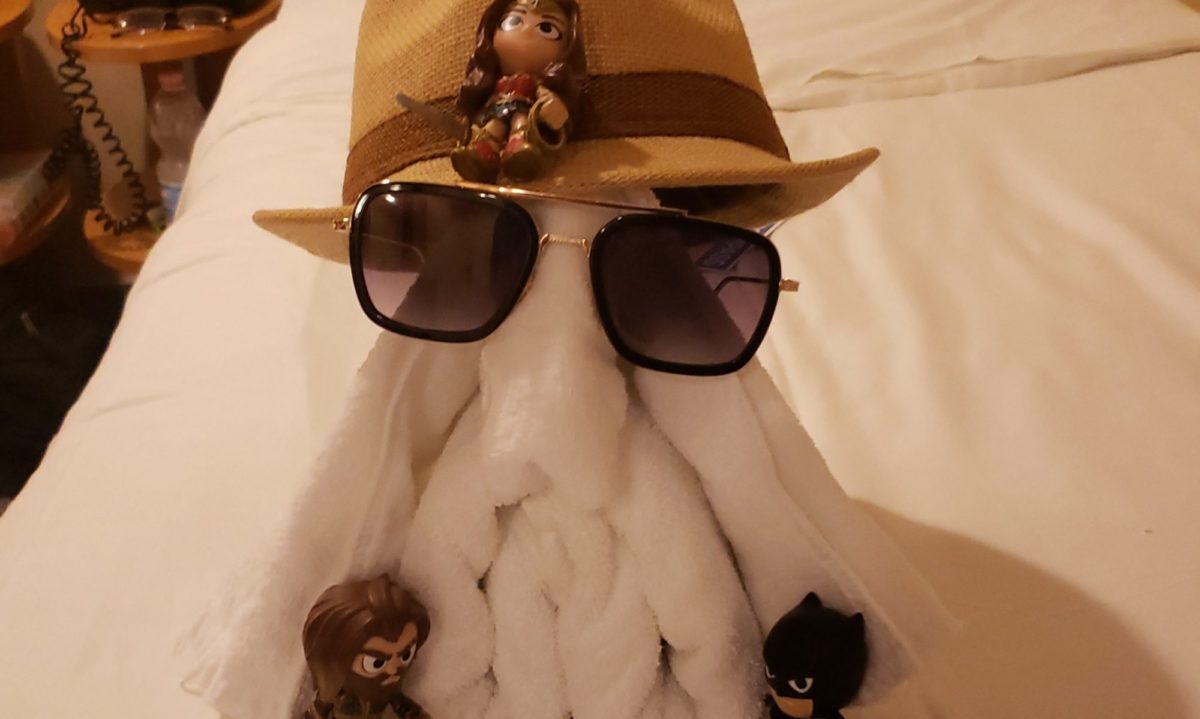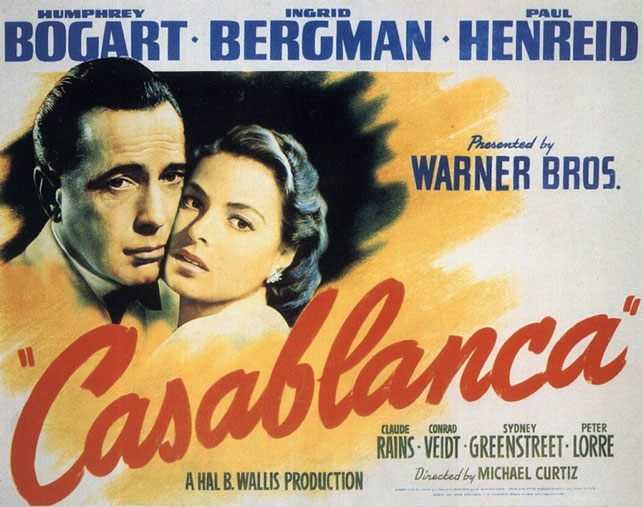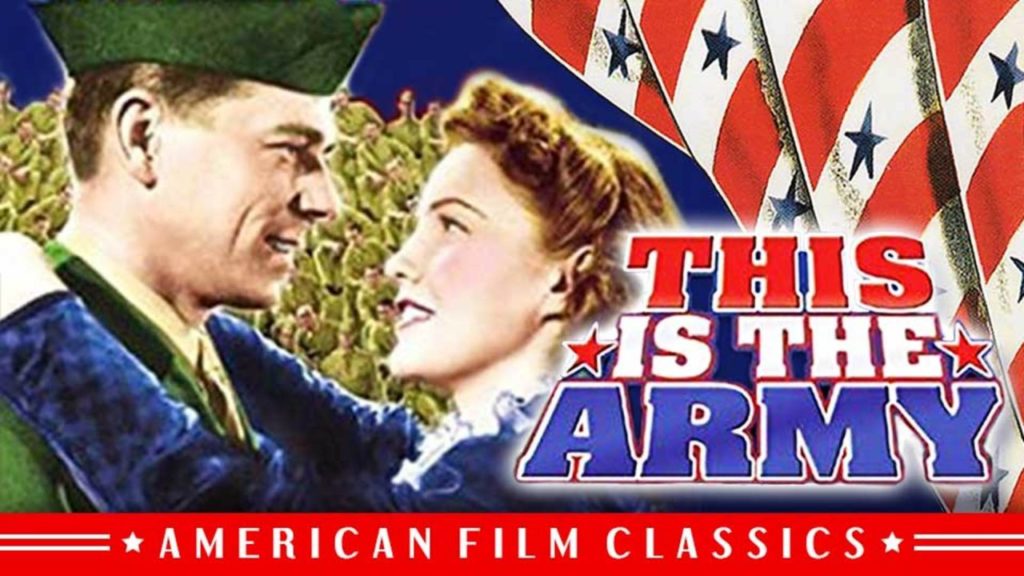1943
War raged on in Europe and the South Pacific. Italy surrendered, Germany lost the Battle of Stalingrad, and Hollywood was sticking it to Nazis through both gripping, timeless narrative and cinematic empty calories.
Some big names make their first appearances in this series, and first up, the one I’ve been looking forward to through 22 movies.
And The Oscar Goes To…
Casa-MF’n-blanca.
Can you believe the Golden Globes went with some religious drama called The Song of Bernadette? Ugh. Can you imagine. Yes it made more money but damn, Globes, you were just always a little off, weren’t you.
Anyhoo, Casablanca. A movie so iconic that 77 years later its signature song, “As Time Goes By” (the “it” in “Play it, Sam”), plays under the Warner Bros. studio logo before a movie.
Let’s get the “Hollywood in wartime” perspective out of the way first: we’re still on the “We should fight them Nazis” train, while in this case staying far away from any actual battlefield. But there are Good Guys and Bad Guys (and a few Casino Planet From Last Jedi Shady Neutral Guys), and all the Bad Guys heil Hitler, every one of them.
In case there’s anyone here who somehow doesn’t know the movie, an American ex-pat named Rick runs a bar in Casablanca, a city filled with refugees from Europe trying to get an exit visa in order to escape to the US via Lisbon. Rick used to fight fascism, but now he just runs his bar and stays out of other people’s dramas… until the love of his life, Isla Lund, strolls into his bar on the arm of infamous resistance figure and Most Wanted Refugee Victor Laszlo. Isla is torn between her two great loves, Rick is torn between the love they once shared and his anger at her sudden departure, and the Gestapo tries its best to get a noose around Laszlo’s neck…
And it’s an utter classic. Humphrey Bogart gives Rick a palpable world-weariness while still letting his charisma and a hint of Rick’s old fire shine out from underneath. He and Ingrid Bergman had sensational chemistry, in the flashbacks to happy times and the tension of their reunion. Claude Rains is basically perfect and gets half the laughs as corrupt police captain Louis Renault, and he and Bogart play off each other almost as well as Bogart and Bergman. And we have a mini-Maltese Falcon reunion with Sydney Greenstreet and the utterly irreplaceable Peter Lorre. Honestly it’s just wonderful, and its dialogue is so iconic people who’ve never seen the movie can probably name five lines from memory. (Not counting “Play it again, Sam,” nobody says “again.”) But man, some of the ones you don’t know are just as great coming out of this cast. Like Rick ducking out of explaining why his colourful past brought him here and not home to America…
Captain Renault: “What in heaven’s name brought you to Casablanca?”
Rick: “My health. I came to Casablanca for the waters.”
Captain Renault: “The waters? What waters? We’re in the desert.”
Rick: “I was misinformed.”
I’m not here to be the “They don’t make movies this good these days” guy, because they do and they’re called Jojo Rabbit and Knives Out, but it ain’t often.
How Green Was Their Valley? It’s a desert, it’s a light-sandy brown. For everyone, greener valleys were a thing of the past. We are still in “life was great until…” territory, we just started a couple of years after the “until” this time.
And Rotten Tomatoes Says: With a nearly perfect score, Casablanca sits in second place. I mentioned that the list is affected by recency bias, yes?
Well, if this enduring classic was only seventh at the 1943 box office, whatever was at the top must have been something really special, n’est pas?
*Sigh* We both know it won’t be.
The Box Office Champ
It must be hard for many Americans to see Donald Trump turn up on Sex in the City or in Home Alone 2, or… actually you know what if you’re watching Ghosts Can’t Do It that’s on you, you have some annoyance coming. What I’m saying is, putting aside his disastrous economic policies, the man ignored a plague: full-on refused to acknowledge it or encourage life-saving precautions, and let unthinkable swaths of people die, and now here he is in your entertainment, giving Macaulay Culkin directions like he’s not a monster or something.
Anyway hey look everybody it’s Ronald Reagan.
And au revoir to subtlety where “Yay war” messages are concerned, I see.
This movie is actually two hyper-pro-military Irving Berlin shows sewn together into a “Rah rah army” Frankenstein’s Monster, lurching across the screen wondering if it has a soul, or if its maker left that part out.
In 1917, a bunch of likable goofs get drafted to fight in the Great War, but to boost morale are also recruited to put on a musical and comedy revue called Yip Yip Yaphank about how keen the army is. It goes well, they ship out to France, most of them die, that last bit happens very, very fast because this is just the first 15-20 minutes (not including the eight minute, 20 second overture, Jesus CHRIST). We then jump forward 23 years, give or take, as Pearl Harbour causes two things: the original cast of Yip Yip Yaphank’s sons all end up in the military (one is horrified to learn that his son joined the navy), and the film switches from black and white to colour. Some of the surviving Yip Yip Yaphank gang get back together, and since one is a fancy officer now, soon their kids are doing a new revue called, you guessed it, This Is The Army.
And the bulk of the movie is us watching that show, with occasional glimpses backstage, and a half-assed romance for the show’s stage manager, who’s the son of the career song-and-dance man who created both shows. He’s played by Ronald Reagan, the man who popularized the utter myth of trickle-down economics, set democracy in central and South America back a century, and was to the AIDS crisis what a hammer is to a nail. The opening credits make a big deal about how he’s an Actual Soldier (among others), even crediting him as “Lt. Ronald Reagan.” Bear in mind that making movies like this was the literal sum total of Reagan’s military service. Also he looks easily 10 years older than the guy playing his dad, even with the dad in old-age makeup.
The revue has a number just for black soldiers, but still has an extended blackface minstrel number. Readers, I… I think this one might be worse than Roman Scandals. I didn’t want that to be possible, and some of their vaudeville-style comedy numbers were definitely funnier, but… this one’s real bad.
When watching the box office champs I try to see what the audience saw in it, what drew the crowds to this movie, but in this case? Y’all were rubes, 1943. Someone convinced you that watching this was patriotic and you fell for it, you god damned rubes. Just like American Sniper but less actively evil.
Not much else to say, ’cause…
How Green Was Their Valley? What’s the opposite of green. Red? Red. Their valley was crimson.
And Rotten Tomatoes Says: Nothing much, but the worst audience score I’ve seen since starting this.
Other Events in Film
Not much else to mention except the very first cinematic appearance of Batman, in a serial bearing his name from Colombia Pictures, in which Batman and Robin fight Japanese saboteurs look the early 40s were all about the war propaganda and sometimes it was racist let’s move on.
Next Page: How about songs AND a plot?




One thought on “Art Vs Commerce: How Green Was the Golden Age? (1940s)”